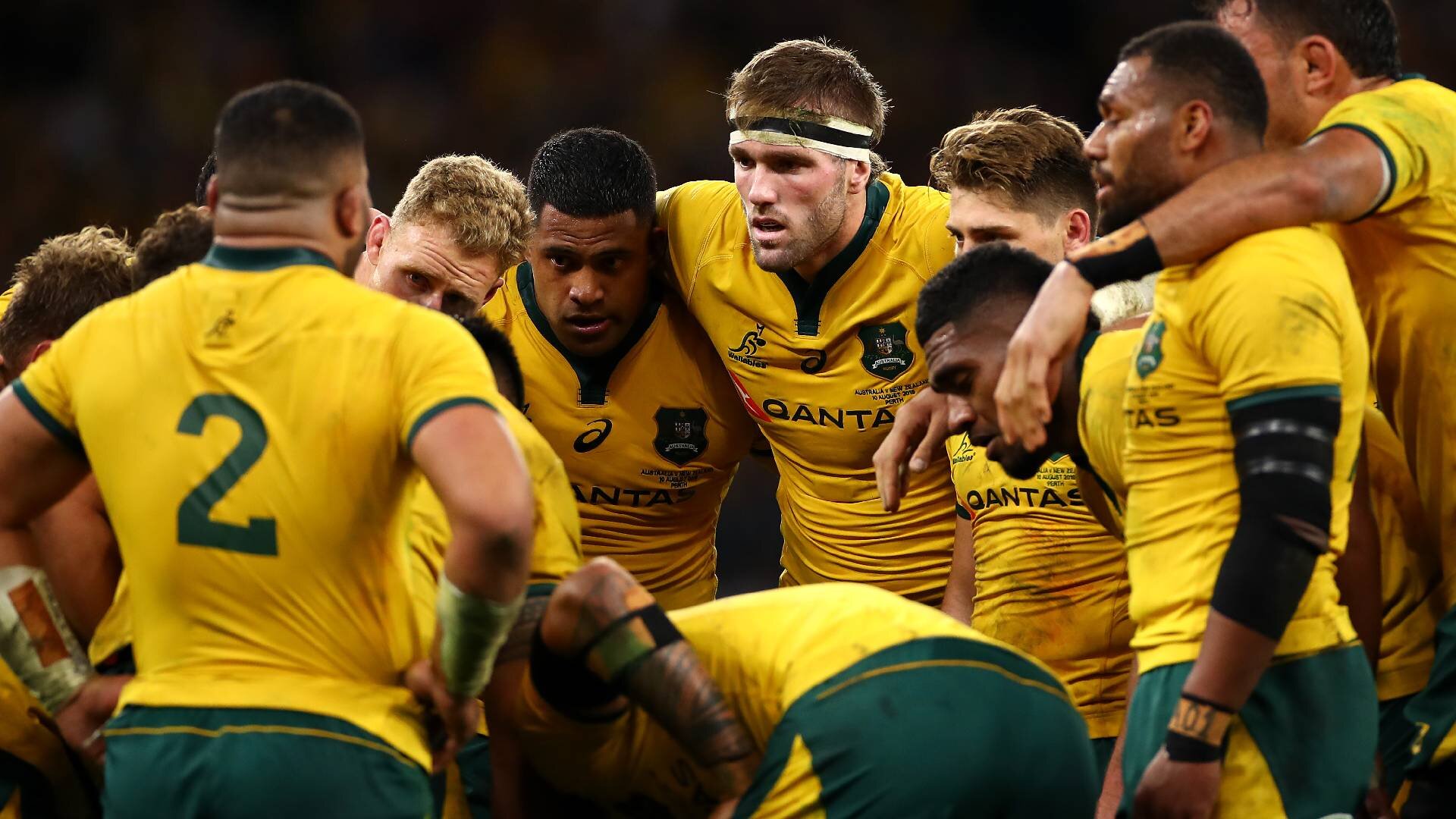Focus set to shift for Rugby Australia as player pay deal nears fruition

Focus can move to a return date once Rugby Australia’s (RA) short-term player pay deal is finalised as expected on Monday.
It’s understood players will be asked to take up to 65 per cent pay cuts to match RA boss Raelene Castle’s salary reduction as the code strips back to survive the impact of coronavirus.
The formal discussions between RA and the Rugby Union Players’ Association (RUPA) have stretched beyond two weeks, with the broader playing base consulted over the weekend as a deal neared.
Rugby will be among the last Australian codes to finalise its player pay cuts, with the NRL and AFL settling on 71 and 50 per cent sacrifices in deals struck several weeks ago.
The NBL, not due to start until October, announced on Friday its highest earners will suffer up to 50 per cent hits in a policy set to be revisited in three months.
The pressure to finalise a deal has increased with World Rugby’s announcement of a $158-million relief fund that will reportedly only be accessible once a pay deal is struck.
Three-quarters of Rugby Australia’s staff have been stood down, with a projected revenue hit of $120 million if no Super Rugby or Test matches are played this year.
https://www.instagram.com/p/B-_IYFLgAjC/
A replacement five-team domestic competition set to include the Western Force was initially planned for an April 3 start before it was postponed until at least May 1.
The Wallabies are due to host Ireland in July, while there is hope a quick-fire Rugby Championship could be held in Australia later this year.
World Rugby chairman Bill Beaumont, who faces a challenge for his job from Argentine vice-chairman Agustin Pichot in an election later this month, said the sport’s global unity meant an increased flexibility in scheduling.
“I think it’s one of those situations where everyone is in it together,” Beaumont told the BBC.
“I think there’s a real spirit of collaboration between the north and the south.
“Look, what we can do with our playing windows? What can we do in the international windows that can generate more funds from another competition.”




































































